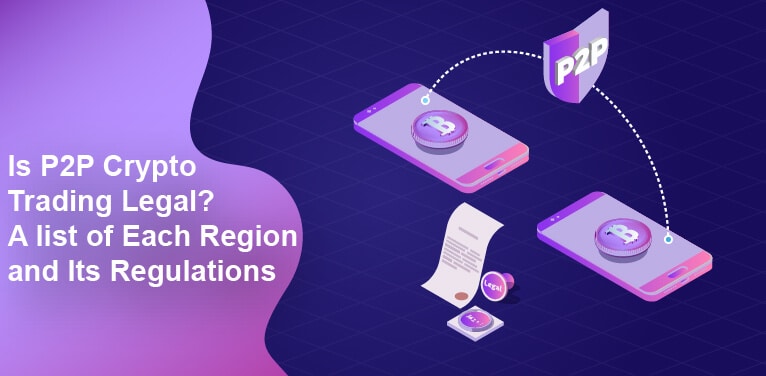Different countries of the world have varying laws concerning peer to peer or P2P crypto trading between buyers and sellers and if it should be allowed within the region or not.
Is P2P Crypto Trading Legal In Europe?
There is no specific legislation that has been created by the EU to state the legality of P2P trading on exchanges. It only stated that VAT/GST should not be applicable when converting fiat to crypto and vice versa. To the European Central Bank, it is seen as a highly decentralized virtual currency. The EU Parliament proposes a task force to look for creative ways to tackle the usage of virtual currencies for money laundering.
South American regulations
South American countries are becoming more open to the idea of P2P crypto trading, especially that of Bitcoin. Countries like Venezuela that used to arrest bitcoin miners and those that use cryptos are now considered legal by the Supreme court in Venezuela. Chile does not have any law concerning P2P crypto trading. Is p2p crypto trading legal in Argentina? To the government there, bitcoin is seen as a good, and not a legal currency, but it is not banned. Not every country in South America shares similar thoughts. In Bolivia, for example, there is an outright ban on Bitcoin and P2P trading.
P2P trading in North America
In Canada, P2P crypto trading is legal. Every company that deals in virtual currencies have to be registered with the Financial Transactions and Reports Analysis Centre of Canada (Fintrac). They have to comply with the guidelines and report any suspicious transactions. The Bank of Montreal in 2018 stopped its clients with its credit and debit cards from entering any transactions that are linked to cryptocurrency.
Is P2P crypto trading legal in the US? Yes, it is. Since 2013, the U.S. Treasury has ranked crypto as a convertible decentralized virtual currency. In 2015, CFTC ranked it as a commodity, and IRS taxes it as property. Residents in the US are allowed to carry out P2P crypto trading, as long as they follow the necessary IRS guidelines.
Is P2P Crypto Trading Legal In Southeast Africa?
Generally, in southeast Africa, P2P crypto trading is not illegal, but caution is advised by the government. In Mauritius, for example, the Financial Services Commission of Mauritius sees it as a Digital Asset but advises investors to be cautious. It is not illegal within the country.
West Africa
In West African countries, there is an alert stating that banks are not allowed to be involved in crypto transactions. Banks are not allowed to permit their users to engage in any form of crypto trading, especially in Nigeria. Is P2P crypto trading legal? Yes, it is, as there is no law banning it for now.
Is P2P Crypto Trading Legal In Asia
The likes of China and India have some type of ban against cryptocurrency, which makes it difficult to carry out P2P trading within those countries.
In other Asian countries like Kyrgyzstan, bitcoin is seen as a commodity, but not a currency. It can be traded, sold or even mined, meaning that P2P crypto trading is also legal.
Uzbekistan also shares similar views with Kyrgyzstan, and it is seen as a highly crypto-friendly state.
Conclusion
Countries tend to change their laws surrounding P2P exchanges, crypto trading and crypto, in general, from time to time. What may have been obtainable a few months back may not be what is currently on the ground. It is advisable to find out if crypto trading is legal in your region before you try it.
